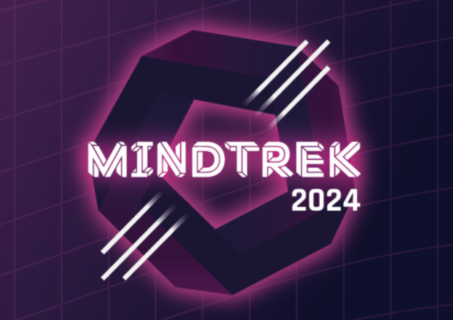Call for Papers on Games and Gamification @ 27th International Academic Mindtrek Conference
We are pleased to invite you to submit your latest research to the Games or Gamification track at the 27th International Academic Mindtrek conference, which will take place between the 8th and 11th of October 2024 in Tampere, Finland. The Academic Mindtrek conference is an exciting meeting place where researchers, experts and thinkers present results from their latest works regarding the development of novel technology, media and digital culture for the society of tomorrow.
Call for Papers: Games and Gamification Track at International Academic Mindtrek conference
Gamification is considered a “process of transforming any activity, system, service, product, or organizational structure into one which affords positive experiences, skills, and practices similar to those afforded by games, and is often referred to as the gameful experience” (Hamari, 2019). This is frequently employed, albeit optionally, with the aim of promoting changes in human behaviors or sparking cognitive processes. Given that the primary inspirations for gamification are games and play, gamification is implemented through the utilization of elements, principles, and technologies of game design (Morschheuser et al., 2018). Gamification has become an umbrella concept that, to varying degrees, includes and encompasses other related technological developments such as serious games, game-based learning, exergames & quantified-self, games with a purpose/human-based computation games, alternate reality games, and persuasive technology.
Secondly, gamification also manifests in a gradual, albeit unintentional, cultural, organizational and societal transformation stemming from the increased pervasive engagement with games, gameful interactions, game communities and player practices (Hamari, 2019). For example, recently, we have witnessed the popular emergence of augmented reality games and virtual reality technologies that enable a more seamless integration of games into our physical reality. Moreover, the media ecosystem has also experienced a degree of ludic transformation: with user-generated content becoming an important competitor for large media corporations. This transformation has led to the development of several emerging phenomena such as the Youtube and modding cultures, esports, or the ‘metaverse’, that have penetrated the cultural membrane allowing games to seep into domains hitherto dominated by traditional media.
Relevant topics include (but are not limited to):
- Users: e.g. Engagement, experience, motivations, user/player types
- Education: e.g. Serious games, game-based learning, simulation games
- Media: e.g. eSports, streaming
- Commerce: e.g. Game business models, free-to-play, gamification as marketing, adoption
- Work: e.g. Organizational gamification, gameful work, games-with-a-purpose, playbour
- Technology: e.g. VR, AR, MR, gameful wearables, metaverse and IoT
- Toys & playfulness: e.g. Digital puppetry, smart toys
- Health: e.g. Quantified-self, games for health, health benefits
- Theories/concepts/methods: Contributions to science around games and gamification
Important dates for paper submission:
May 2, 2024 | Paper submission deadline
July 1, 2024 | Notification of acceptance/rejection
Hamari, J. (2019). Gamification. The Blackwell encyclopedia of sociology, 1-3.
